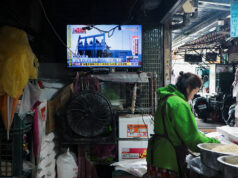Gov’t looks to float sukuk bonds under Islamic finance framework
By Elijah Joseph C. Tubayan, Reporter
THE GOVERNMENT is looking at floating Shari’ah-compliant securities next year, but will still wait for the establishment of a legal framework for Islamic banking, the Department of Budget and Management (DBM) said yesterday.
Budget Secretary Benjamin E. Diokno said the development of Islamic finance in the country is part of the Duterte administration’s economic reform agenda.
“The President’s commitment to the Muslim people is not lost on us, his economic managers. One important economic issue that we are looking into is lack of access to Shari’ah-compliant financial instruments in the market,” Mr. Diokno was quoted in a statement as saying.
“This should be exciting news with Islamic finance being largely collateral-based or asset-backed,” he added.
Mr. Diokno however said that the government will first wait for the legal framework before issuing Islamic or Sukuk bonds.
Mr. Diokno said in a media briefing on Wednesday that the start of public offerings of Shari’ah-compliant securities may “take another whole year.”
The House of Representatives on Tuesday approved on second reading House bill No. 8281, or An Act Providing for the Regulation and Organization of Islamic Banks. Its counterpart bill, however, is pending at the committee level at the Senate.
The bill seeks to promote financial opportunities to the underserved Muslim population by authorizing the establishment of Islamic banks, the entry of foreign Islamic banks to operate here, and conventional banks to establish Islamic banking transactions.
Currently, the Al-Amanah Islamic Investment Bank of the Philippines is the sole lender in the Philippines that performs Shari’ah-compliant lending practices.
Islamic banking differs from commercial banking as it prohibits the charging of interest upon loans — instead, lenders earns by forging partnerships and lease-to-own deals with borrowers.
The bill allows Islamic banks to accept or create current accounts, accept savings for safekeeping, accept investment accounts, foreign currency deposits, issue letters of credit or guarantee, negotiate notes and bills of exchange, act as correspondent of banks to handle remittances, act as collection agent of payment orders, provide Shari’ah compliant financing contracts, and handle storage operations for goods or commodity financing, issue shares, among others.
Mr. Diokno said in the statement that the government is committed to “financial inclusion and the growth of our financial sector,” noting it will “continue to move this issue forward with utmost diligence and care.”
The government has been diversifying its financing sources. Earlier this year, it has raised fresh funds from successful issuances of dollar-, renminbi-, and yen-denominated bonds.
It is also set to float retail bonds this year, while another offer of securities is targeted raise money for Marawi city. It is also eyeing to tap the Euro debt market in the future.



